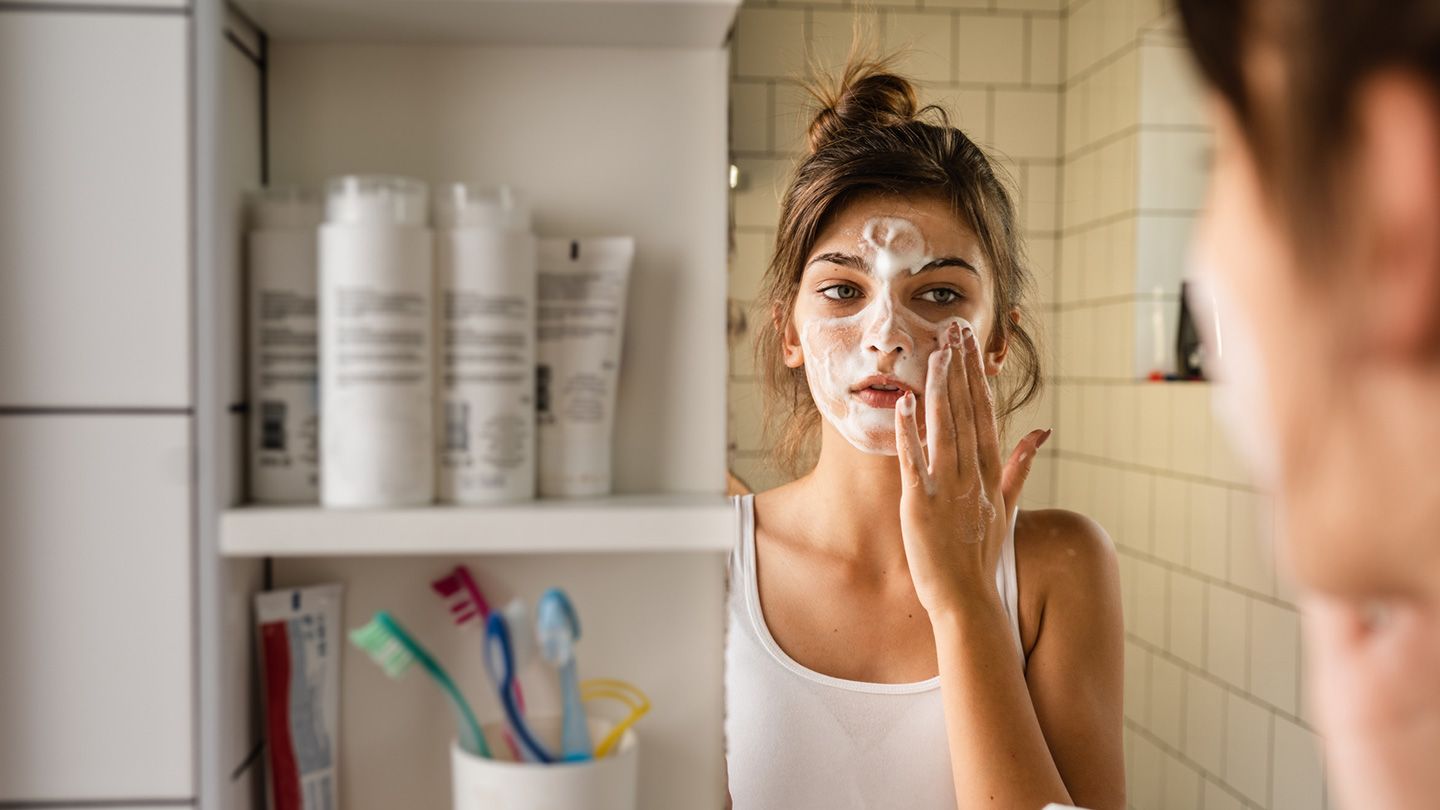Rosacea is a common skin condition that affects millions of people worldwide. It is characterized by redness, flushing, and sometimes, the presence of small, pus-filled bumps on the face.
While there is no cure for rosacea, there are several skincare strategies that can help manage symptoms and keep flare-ups at bay.
By adopting a gentle and consistent skincare routine, you can help soothe and protect your skin from the effects of rosacea. Here are some effective skincare tips for managing rosacea:
Gentle Cleansing:
When you have rosacea, it’s important to use gentle, fragrance-free cleansers that won’t irritate your skin. Look for mild, non-soap cleansers that are specifically formulated for sensitive skin. Avoid harsh cleansers, scrubs, and skincare products that contain alcohol, fragrances, or other potential irritants.
Avoid Hot Water:
Hot water can exacerbate rosacea symptoms by causing flushing and irritation, so it’s best to wash your face with lukewarm water. Avoid hot water and steam, and opt for tepid water when cleansing your skin. After washing your face, gently pat your skin dry with a soft towel.
Moisturize Daily:
Keeping your skin well-hydrated is essential for managing rosacea symptoms. Apply a gentle, fragrance-free moisturizer to your skin twice a day to help soothe and protect your skin.
Look for moisturizers that contain ceramides, which help repair the skin barrier, and avoid products that contain alcohol, fragrances, or other potential irritants.
Use Sun Protection:
Sun exposure can trigger rosacea flare-ups and worsen existing symptoms, so it’s important to protect your skin from the sun’s harmful UV rays. Apply a broad-spectrum sunscreen with an SPF of 30 or higher to your face and neck every day, even on cloudy days. Wear protective clothing, such as wide-brimmed hats and sunglasses, and seek shade whenever possible.
Avoid Triggers:
Identify and avoid triggers that can exacerbate your rosacea symptoms, such as certain foods, beverages, skincare products, weather conditions, and emotional stress.
Common triggers include spicy foods, hot beverages, alcohol, extreme temperatures, and strong winds. Keep a journal to track your symptoms and identify potential triggers, and make changes to your skincare routine and lifestyle as needed to avoid flare-ups.
Use Gentle Skincare Products:
When you have rosacea, it’s important to use gentle, non-irritating skincare products that won’t exacerbate your symptoms.
Look for products that are specifically formulated for sensitive skin and free of potential irritants such as fragrances, dyes, and alcohol. Avoid harsh exfoliants, toners, and astringents, and opt for mild, soothing products instead.
Consider Topical Treatments:
In addition to a gentle skincare routine, your dermatologist may prescribe topical treatments to help manage your rosacea symptoms.
Topical treatments may include creams, gels, or lotions that contain ingredients such as azelaic acid, metronidazole, or sulfur.
Follow your dermatologist’s instructions carefully when using topical treatments, and be patient, as it may take several weeks to see results.
Manage Stress:
Emotional stress can trigger rosacea flare-ups and worsen existing symptoms, so it’s important to find healthy ways to manage stress and relax.
Practice stress-reducing techniques such as deep breathing, meditation, yoga, or tai chi. Make time for activities that you enjoy, and prioritize self-care and relaxation.
Cool Compresses:
Applying cool compresses to your face can help soothe inflammation, reduce redness, and alleviate discomfort associated with rosacea.
Simply soak a clean washcloth in cool water, wring out the excess moisture, and apply it to your face for 10 to 15 minutes. Repeat as needed throughout the day for relief.
Consult a Dermatologist:
If you’re struggling to manage your rosacea symptoms on your own, or if your symptoms are severe or persistent, it’s important to consult a dermatologist for personalized treatment and advice.
Your dermatologist can help identify triggers, prescribe appropriate medications, and develop a skincare routine that works for you.
Conclusion:
While there is no cure for rosacea, adopting a gentle and consistent skincare routine can help manage symptoms and keep flare-ups at bay.
By following these effective skincare tips, you can help soothe and protect your skin from the effects of rosacea and improve your overall quality of life.
If you’re struggling to manage your symptoms, be sure to consult a dermatologist for personalized treatment and advice.
